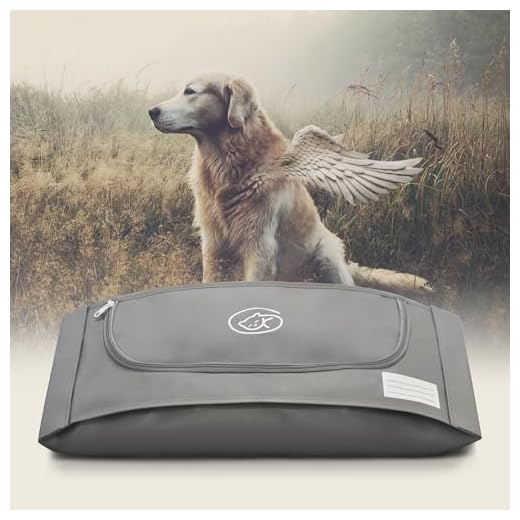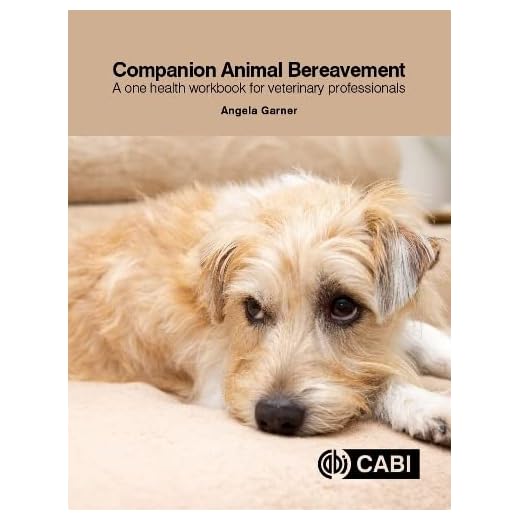




Choosing a humane way to say farewell to a beloved pet is never easy, but finding a local veterinary clinic that offers this service is a crucial first step. Many animal hospitals provide compassionate euthanasia options, ensuring a peaceful transition for your furry friend. Check online reviews and ask for recommendations from fellow pet owners to identify reputable facilities nearby.
Additionally, some veterinarians offer in-home services, allowing your canine to be surrounded by familiar comforts during their final moments. This option can significantly ease the stress for both the animal and the owner. Look for mobile veterinary services in your area that cater specifically to this need; many have dedicated teams trained to handle such sensitive situations with utmost care.
Contact local animal shelters or rescue organisations as well. They often have resources and can guide you to veterinarians who specialise in end-of-life care. They may also have a list of low-cost options if financial concerns are a factor in your decision-making process.
It might be helpful to prepare a list of questions before your appointment. Inquire about the procedure, what to expect, and any aftercare options available for your pet. This preparation can help ease your mind and ensure that you make informed choices during this difficult time.
Options for Euthanasia Services in Your Area
If you’re facing the heart-wrenching decision regarding the end of your pet’s life, there are various avenues to consider for humane assistance. Here are some practical recommendations:
- Local Veterinary Clinics: Most veterinary offices offer euthanasia services. Call ahead to discuss the process and make arrangements. They can guide you through your options.
- Animal Shelters: Reach out to nearby animal shelters or rescue groups. Many have resources or can recommend veterinarians who perform this service.
- Mobile Veterinarians: Some vets specialise in at-home euthanasia, allowing your companion to pass in a familiar environment. Search for mobile vets in your locality and check reviews.
- Pet Hospitals: Larger pet hospitals often have dedicated teams for end-of-life care. They can provide a comfortable setting and support during this difficult time.
- Online Directories: Websites like AVMA or local veterinary associations can help locate qualified professionals in your area. They often provide lists and ratings to assist in your search.
Each option has its unique benefits, so consider what feels right for both you and your beloved pet. Don’t hesitate to reach out for support during this challenging moment; many professionals are compassionate and understanding, ready to guide you through the process.
Identifying Local Veterinary Clinics for Euthanasia Services
Start by searching online for veterinary clinics in your area that offer humane euthanasia. Websites like Google Maps or Yelp can provide reviews and ratings, helping you assess the quality of services offered. Look for clinics that specifically mention end-of-life care, as they often have compassionate staff trained to handle these sensitive situations.
Questions to Ask Veterinary Clinics
When you contact a clinic, it’s crucial to ask specific questions to ensure they meet your needs:
| Question | Purpose |
|---|---|
| Do you provide in-home euthanasia services? | Comfort for your pet and family during a difficult time. |
| What are your fees for euthanasia? | Understanding costs to avoid surprises. |
| What options do you offer for aftercare? | Consideration for burial or cremation services. |
| Can I stay with my pet during the procedure? | Ensuring you can provide comfort to your companion. |
Additional Support Resources
Look into local pet support groups or hotlines that can provide emotional assistance during this process. These resources often offer invaluable support and can help guide you to the right veterinary services. Additionally, while caring for your pet, consider their nutritional needs during this time. You might want to explore the best dog food for reproduction to keep your pet comfortable and nourished.
Understanding the Costs Involved in Euthanasia
Consulting with a veterinary clinic is the first step to grasping the expenses associated with humane euthanasia. Prices can vary widely depending on the location, the size of the animal, and additional services offered by the clinic. Generally, the basic procedure may range from £50 to £200. Many facilities provide a breakdown of costs during the initial consultation.
Additional Expenses to Consider
Sometimes, extra charges can arise. If you choose to have the animal cremated, for example, this service typically adds £50 to £150 to the total. Burial services, whether at a pet cemetery or on your property, can also incur costs. Be sure to ask about these options and their respective fees during your discussion with the veterinary staff.
Payment Options and Assistance
Some clinics offer payment plans or financial assistance programs, so it’s worthwhile to inquire about these possibilities. Non-profit organisations may also provide support for pet owners facing financial hardships. Researching these options can ease the burden during this difficult time.
Evaluating Home Euthanasia Options for Your Pet
If you’re considering at-home euthanasia for your beloved companion, it’s essential to research and evaluate your options thoroughly. Many veterinarians offer this service, allowing your pet to pass away comfortably in familiar surroundings. Start by seeking veterinarians who specifically provide in-home euthanasia. You can find local providers through online searches, social media groups, or even by asking your regular vet for recommendations.
Questions to Ask Providers
When contacting potential veterinarians, prepare a list of questions to ensure you choose a compassionate and professional service. Inquire about their experience with at-home procedures, the process they follow, and the medications they use. Understanding their approach to handling your pet’s final moments can significantly affect your comfort level during this difficult time.
Considerations for Your Home Environment
Before the appointment, think about where in your home would be most suitable for the procedure. A quiet, comfortable space can help create a peaceful atmosphere. You might want to have your pet’s favourite blanket or toys nearby to provide comfort. If other pets are present, consider how they might react and whether you want them to be part of the experience.
Choosing to say goodbye at home can offer a sense of closure, allowing you to cherish your pet’s final moments in a loving environment. It’s a personal decision that requires careful thought, but when done right, it can be a dignified farewell for your furry friend.
What to Expect During the Euthanasia Process
When the time comes for a beloved pet to peacefully transition, understanding the process can help ease the emotional burden. The experience typically begins with a consultation at the veterinary clinic or your home, where the veterinarian will discuss what to expect during the procedure. Make sure to ask any questions you might have to feel more at ease.
Initial Steps
Once you arrive at the veterinary office, the staff will guide you to a quiet room. This is a comforting space designed for this difficult moment. The veterinarian will explain the procedure, including the medication used, which is usually administered via injection. It’s important to ensure that you and your pet are as relaxed as possible before proceeding.
The Procedure
The veterinarian will typically start with a sedative to help your companion feel calm and drowsy. After a few minutes, the second injection will be given. Most pets will simply drift off to sleep, and many owners find comfort in knowing that their furry friend is not in pain. It’s perfectly natural to hold your pet and offer soothing words during this time. Remember, this moment is about love and compassion, ensuring your pet’s dignity and comfort in their final moments.
Aftercare Choices for Your Pet Post-Euthanasia
After the difficult decision, it’s important to consider what happens next. You have several options for aftercare that can help honour the memory of your beloved companion. Many veterinary practices offer cremation services, which can be a comforting choice. You may opt for individual cremation, allowing you to keep your pet’s ashes in a special urn. Some facilities provide a selection of urns or memorial items, making it personal.
Burial Options
If you prefer a burial, check local regulations regarding pet interment. Some areas allow home burials, while others require burial in designated pet cemeteries. A pet cemetery can provide a serene resting place, often with options for memorial markers. Consider a biodegradable casket if you’re looking for an eco-friendly choice.
Memorialisation Ideas
Creating a lasting tribute can be therapeutic. You might choose to have a paw print impression made or a custom portrait painted. Planting a tree or flowers in memory can also serve as a beautiful reminder. Additionally, many people find comfort in compiling a scrapbook or digital album, showcasing the joyful times shared together.







